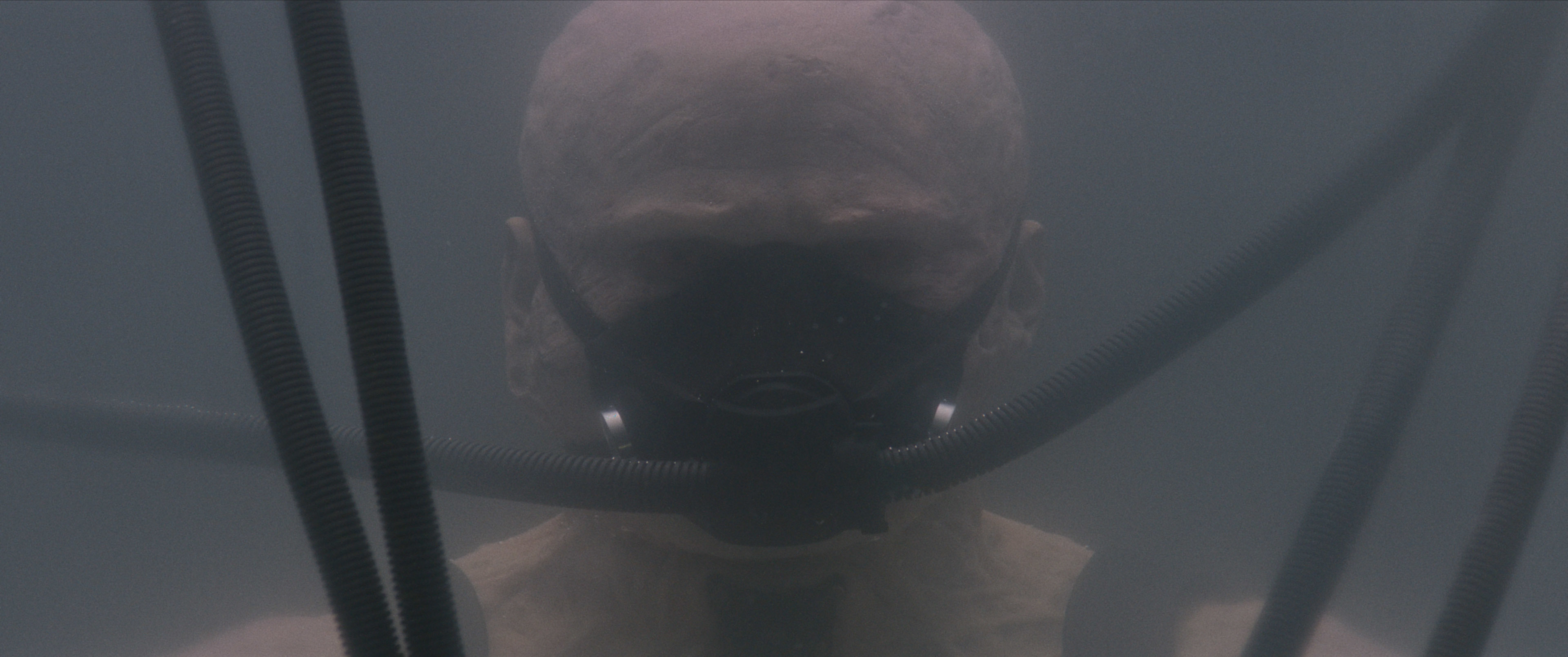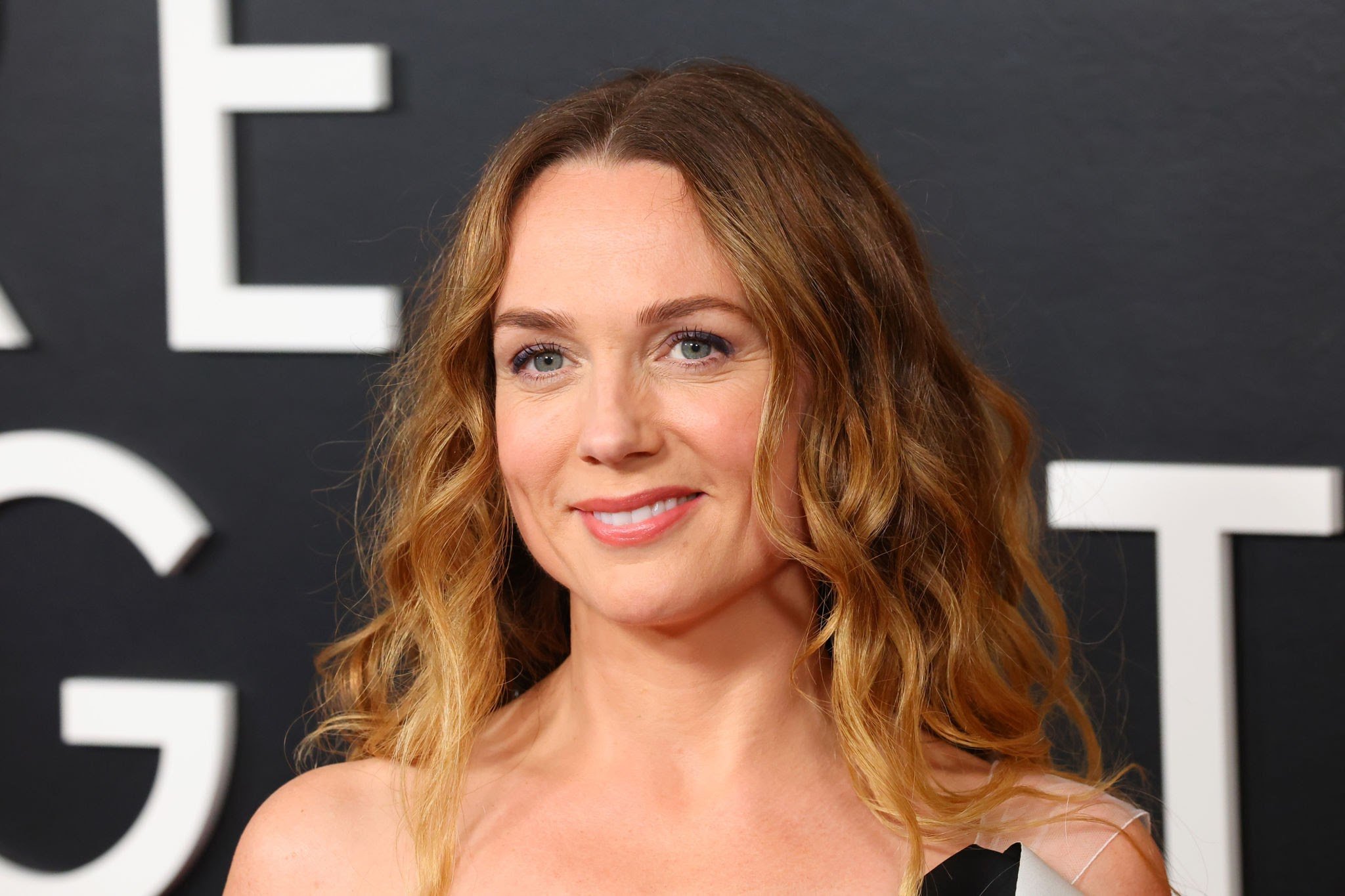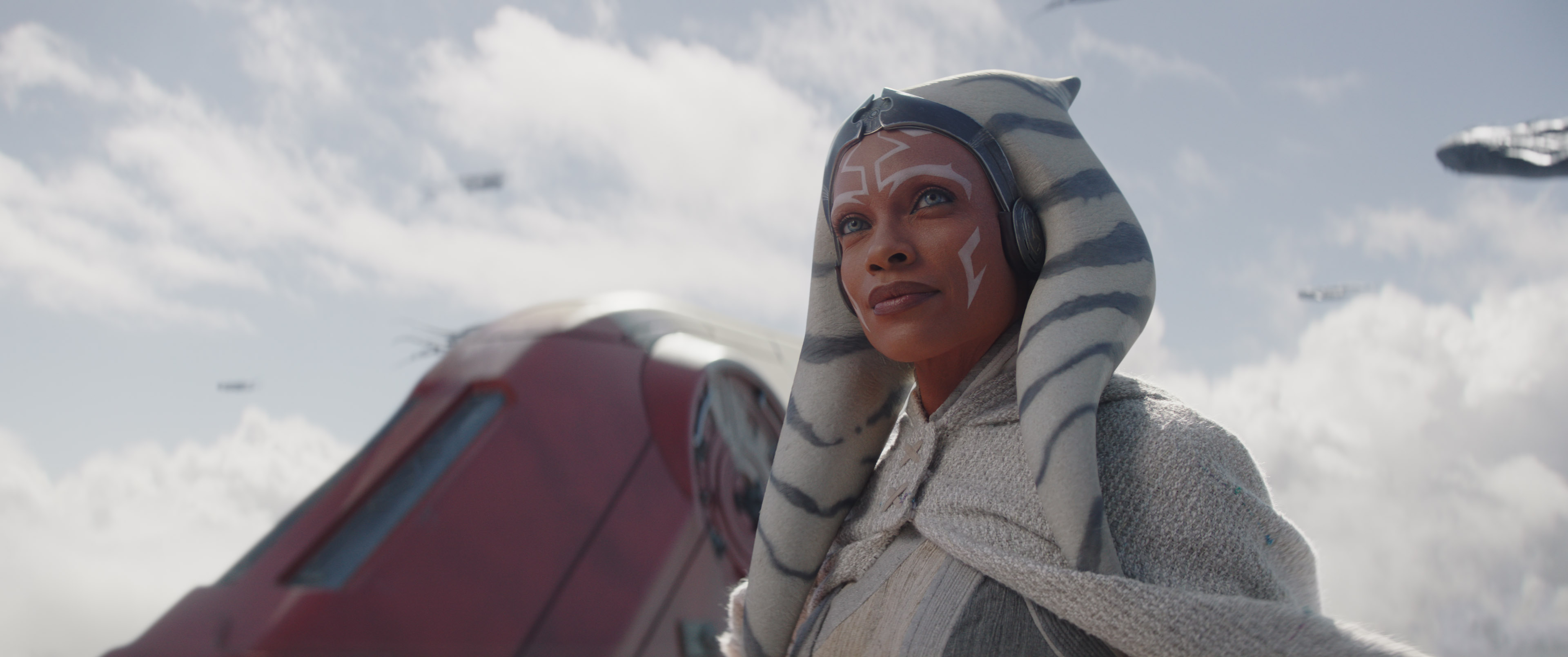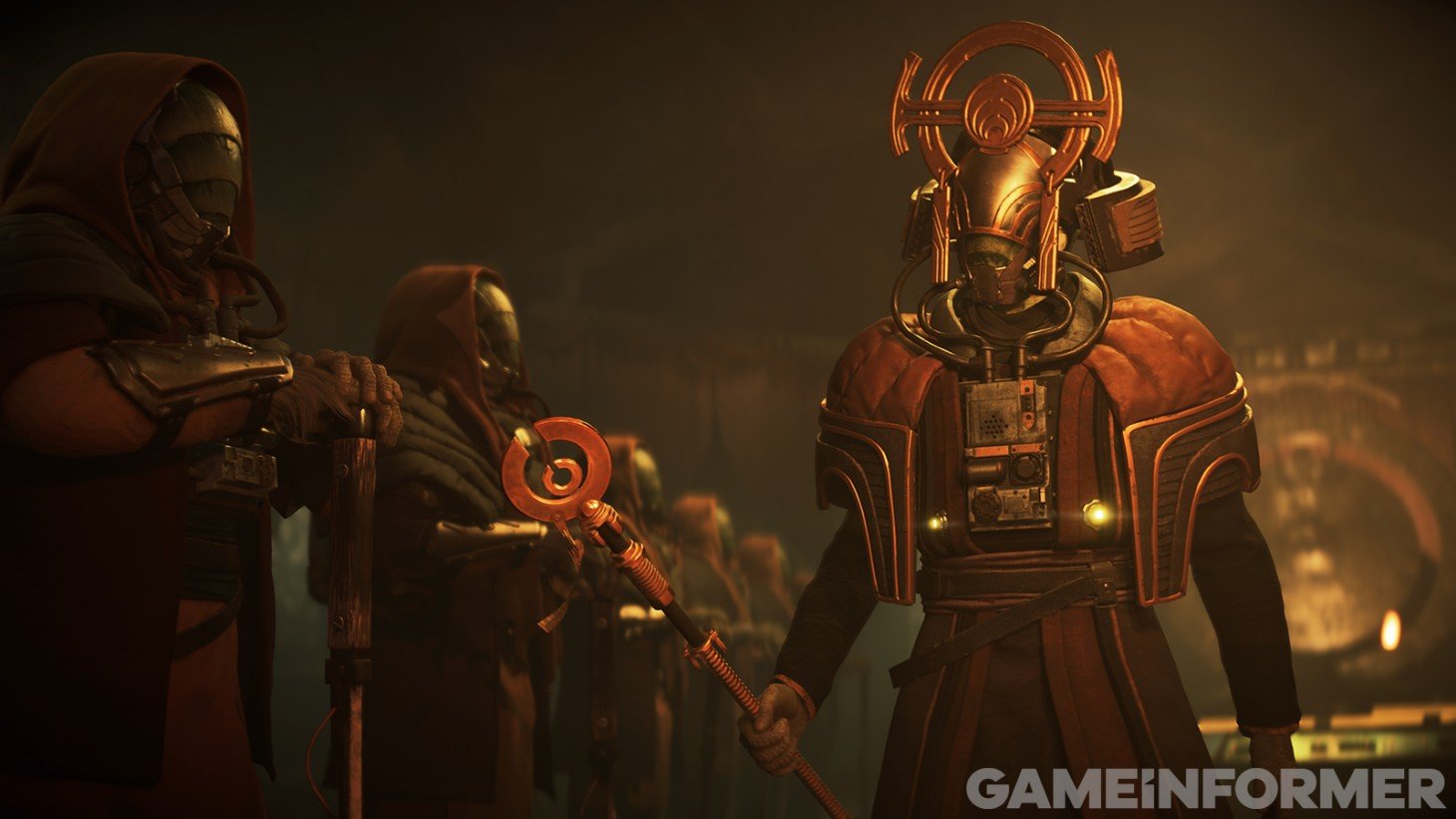‘Avatar: The Way of Water’ Movie News Net Roundtable
![]()
It’s finally here. After 13 years, audiences all around the world have been returning to Pandora with the release of Avatar: The Way of Water last Friday. You can read our review of the film right here, but for a cinematic event of this size everyone here at Movie News Net wanted to share their thoughts, so we’ve put together this roundtable discussion on James Cameron’s latest epic.
Spoilers ahead.
Chris: Okay, first things first, you need to see this movie in 3D on a big screen. I’m probably more of a 3D fan than most people, but this film really showcases what good 3D looks like and just how incredible it can be when done right. Building on that, this film is gorgeous. The world of Pandora is just breathtaking to behold in some scenes, and when they go underwater, just wow! Disney have set an insanely high bar for their own The Little Mermaid remake to clear next year.
Beyond the visuals, Avatar: The Way of Water is good, very good in parts, but I found myself losing engagement as the movie meandered at times. I feel like this film is the antithesis of Star Wars: The Force Awakens in some ways. The Force Awakens grabbed you at the offset and didn’t let go, moving at breakneck pace as it reintroduced you to the world of Star Wars; it sucked you in but skipped some key world-building, arguably to the detriment of the films that followed. By contrast, The Way of Water features some incredible world-building, but possibly at the expense of telling a tighter story.
The story, overall, I found stronger than in the first Avatar. It does hit some similar beats as Jake and Neytiri’s children learn to adapt to life as part of the Metkayina Clan, but on the whole, it manages to feel more original than the first even if it doesn’t achieve any greater depth than before. And, whilst they don’t all get the same level of focus, I did enjoy the development of the younger characters and the story of Payakan. Yes, space whaling is essentially just replacing space mining from the original, but it does give that element a more emotional connection as well as a very satisfying payoff in the final act.
Which is good, as the adult cast don’t have the deepest of character arcs. Jake, and to a lesser extent Neytiri, adapt to their new lives at the reef before coming to accept that they can’t run from the fight, whilst Quaritch becomes your average “evil version of the hero” in his new avatar body. He’s a physical threat to the heroes, especially the children, but his motivations remain thin. “I’m not him [the original, human, Quaritch],” he tells Spider at one point, but his entire motivation is revenge for his original death and trying to prove he’s better than Jake. There’s hints this could change in the future but, just like Jake’s full return to the fight, that’s for the sequels to explore.
Two moments did confuse me a little. The first was Jake’s reason for taking his family to the Metkayina Clan. This is the man who was Toruk Makto and led the Na’vi against the sky people in the first Avatar, who has been leading strikes against the returning humans for a year at the start of The Way of Water, and the moment he learns Quaritch is back in an avatar body and hunting him and his family, he has no idea what to do other than to run and hide? Yes, Spider could have led Quaritch to the Metkayina Clan’s base, but Jake leaving doesn’t change that. Quaritch wants revenge on Jake personally, but the entire clan were involved in the raids, so the military would still want to attack even if Jake and his family weren’t there. Logically, it doesn’t work to keep the clan safe. It also doesn’t explain why the military go along with Quaritch continuing to focus on Jake and hunting for him out in the reefs rather than keep their pressure on the clan that was actively targeting their operations. These are minor issues overall, but just struck me as a little sloppy given how much thought Cameron has put into this world.
I also wish that Cameron hadn’t spoken about death having more weight and meaning in this world than in comic book movies ahead of the film opening. Instead of that moment being a huge surprise, I went in expecting a major character to die. He inadvertently spoiled his own movie.
Overall Avatar: The Way of Water is a good movie that looks fantastic. It sets a foundation for Avatar 3 to do something more original and to really hit the ground running with all the world-building done, but on its own, it runs too long for the story it is telling. That said, I hope it does absolutely incredible at the box office. Cinemas desperately need this after the last (almost) three years, and films need directors who are willing to push the boundaries of what can be achieved in the medium.
Josh: In case you missed it, I wasn’t overly kind to Avatar: The Way of Water in my review. One thing I regret is that I glossed over the incredible action sequences. The film’s third act is engrossing as things come to a head between Quaritch and the Sully family, with plenty of impressive special effects and some surprisingly brutal deaths. I couldn’t take my eyes away from all the death and destruction that unfolded on-screen. As has been mentioned before, the CGI looks gorgeous, and this is another film that demands to be watched in 3D.
I approve of some of the wider themes that Cameron was going for, touching on subjects like colonialism and how the humans’ threat to Pandora reflects actions taken by our real-life empires throughout history. I also enjoyed the smaller focus this time around, as the stakes shrink from saving Pandora to just keeping Jake’s family alive. That is far more interesting and emotional than what we got in the first film.
However, I can’t escape the fact the whole film fell short for me when it came to the narrative. The dialogue definitely needed more work, and some character arcs either aren’t fully developed (waiting until Avatar 3 to complete them), skip key stages, or are just forgotten about altogether. While Stephen Lang is excellent (most of the main cast are), Quaritch is given a much less interesting story than he could have had. Rather than use his avatar body as an opportunity for a path of redemption, they decide to give him a son from his past life that only barely tugs at his conscience.
The film could have cut an hour out of its runtime easily, but it feels like Cameron released his director’s cut instead. The second act is particularly culpable here, with many character beats that retread Jake’s journey in the first Avatar, all so that we get to see more of Pandora’s flora and fauna. I said in my review that I felt Cameron opted for world-building at the expense of a tight story, and that feels particularly true in the second act.
I also wonder if there are some issues with cultural appropriation in this film. There are a handful of white actors imitating indigenous accents to play alien beings, with Kate Winslet being the most high-profile of those. James Cameron has never shied away from admitting he used Maori culture as inspiration for the new Na’vi clan, but you could argue Winslet did not need to be cast here. There is also a white male teen with full dreadlocks who is identified as being semi-feral (not due to his hairstyle, but it’s an unfortunate coincidence), and I feel like that is something that should have been spotted and sense-checked in the 13 years it took to make this sequel.
Ultimately, Avatar: The Way of Water has a lot of good things going for it, but is flawed in many other ways as far as I’m concerned.
Grant: I’m just gonna say, first and foremost, that I admire James Cameron for his commitment to this franchise. I went from wondering if there was really enough to this concept to warrant no less than four sequels to the first (with Cameron now openly, insanely floating the idea of potentially six sequels in total) to being convinced that yes, there is enough to warrant further exploration into this world. There is more to explore and more to do in Pandora than to simply milk a massive cash cow, and I’m glad to see that this is the case. Judging by the early box office and assuming that there are Titanic or Avatar-like legs on The Way of Water, that massive investment is going to end up paying for itself as long as they see it through. IMAX 3D is the format of choice to see this film in, and I’m imagining that it will leg out because a lot of people are going to wait to see this on the biggest, most premium screen that they can.
The visuals are, naturally, the biggest star of the show here. Cameron has a deep love for the oceans, and while they aren’t the only focus of the film (which spends a lot of time exploring the story of the children of Jake and Neytiri), they absolutely represent a core part of it as the breadth and depth of this world further expands beyond the realm of the first film. It’s particularly impressive to see the first motion-capture performances that heavily involve underwater, free-diving performances, as the logistics involved with getting those shots just right must have been the hardest parts of the production. It really feels like a labor of love by the returning (and new) members of the cast and crew.
While I feel like characters were one of the weaker elements of the first film, which spent a lot of its runtime setting up the nature of Pandora, this film has a much better balance between world-building and character growth. Although I felt that Jake and particularly Neytiri were a little shortchanged in the character development factor, the movie spends quite a bit of time on the kids, who each have their own unique roles in the story. As was the case with the first film, Quaritch is far and away the best-written character, especially given the emotional depth that they get into between adjusting to being resurrected as an avatar and realizing the truth about one of the new characters. I was, however, a bit bummed out that C.C.H. Pounder’s character didn’t really get a scene where she got to say farewell to Neytiri and her own grandchildren, and her relative absence from that portion of the film kind of surprised me.
One thing that came to mind with me watching this movie, and rewatching the first, is that the Avatar movies seem to be structured a bit like a binge session of a high-end budget streaming series as opposed to a traditional epic film. It felt a little less like watching a traditional multi-act structure of a movie and more like a series of completed forty-to-fifty-minute episodes strung together. Cameron talked about how a runtime of three hours isn’t a big deal in this day and age because people are used to watching shows in that kind of a format, and I feel like that quote unintentionally demonstrated his style of storytelling with this franchise going forward.
Something that also came to mind was the writing for the dialogue on this film. I was reminded a little of the last screenplay that Cameron worked on, Alita: Battle Angel. For some reason, it felt like the writing on the movies felt a little more… I’m not sure how to put it, but perhaps a bit on the “How do you do, fellow kids?” side of things. They had some thoughtful things to say, but for whatever reason, it felt like the writing style has been on the side of older people writing dialogue in a way to appeal to younger people, to mixed results. I also felt that, while there were a few good lines in there, there hasn’t been anything on the level of earlier screenplays like Aliens or Terminator 2.
Overall, I would say that the movie is good. I don’t have much more to add, although part of me wonders whether a 13-year wait between installments was necessary. It seems like the first mini-arc in this film (that is, everything from Sully raising a family on Pandora to leaving his home to draw the RDA away from his tribe) could’ve been extended to become a lean 2-hour movie and have released several years ago, and then we could’ve had this movie at about two and a half hours as opposed to over three. That might have been better for this franchise’s long-term financial prospects as the budgets on these movies are now in the $350M-$460M (!) range.
Miguel: James Cameron’s Avatar: The Way of Water feels like the director’s most personal film in decades, perhaps ever. It is a deep story about the challenges, rewards, and fears of parenthood, told from Jake Sully’s perspective, but mostly framed from the kids’ point of view, threading a neat balance overall. And that is barely touching the surface of the ocean of themes that the new sequel, which far exceeds the original in every aspect, touches upon.
Cameron’s nature-loving franchise keeps reminding the audience that, for now, we have one planet to take care of. That humanity’s cruelty makes us unique in the universe for the wrong reasons. That we should protect the blue of our oceans and the green of our forests. That animals have nothing to do with our inner demons, despite being on the receiving end of the worst of our actions. The Way of Water‘s vivid color palette is no coincidence, but rather a constant reminder to take care of what we should hold dear, our home.
The plot of the movie is barebones, and the story is sometimes spread too thin. But that is not why most people will pay the ticket price. Cameron takes the audience on a wild adventure, full of ups and downs, of rich characters and developing mythology. Even if this is the sequel to the highest-grossing film of all time, it is still, for all intents and purposes, an original story. The writers had to come up with all of this new mythology and build a story around it. The movie might be 20 minutes too long, but it represents everything we love about cinema. It tells a layered story that manages to transport us for a few hours to another world and experience a journey like no other we’ll find out there, and then, in the end, we shall have learned something new or gained appreciation for what surrounds us.
Avatar: The Way of Water is an absolute triumph of filmmaking, and the visual effects are but a small part of the reason why. The way Cameron directed the first act is, alone, worth the price of admission to the Best Director race at the Oscars. The score by Simon Franglen is an admirable successor to James Horner’s work on the first movie. Sigourney Weaver’s Kiri is the absolute heart of the movie, as ironic as that may be (the actress was pushing 70 when she filmed the film, where she plays a teenage girl), and she alone is a reason to go back and watch this movie multiple times. It still has a few weak points (Zoe Saldaña’s Neytiri doesn’t get as much screen time or focus as I would have liked, for instance), but so does every other movie. And yet, this feels distinctively different from anything else out there.
Fran: Much like Dune: Part 1 last year, Avatar: The Way of Water is a stunning reminder of how big cinema can be when the right filmmaker is behind all the spectacle. I wouldn’t claim it’s the best film of the year, but it’s certainly among the best for many different reasons. I won’t spend much time beating the “go see this in the biggest screen available” drum other than to say HFR really enhanced the 3D experience as a whole despite some jarring shifts between shots (that version of the film switches between 24 and 48 FPS depending on the action on-screen). You might walk away not convinced by the new tech, but I think it’s worth checking out at least once. I’ve never seen anything as crisp as this film firing on all cylinders on 3D HFR.
I also agree with the general sentiment that The Way of Water tells a deeper, more emotional story than the original, all through a familiar structure and character arcs that will never get old. I can understand wanting “more” out of massive productions which transport us to impossible alien worlds full of wonder, but honestly, getting jumbo-sized, super-expensive chunks of classic storytelling is a rare occurrence nowadays. Amidst all the deconstructions of genres, subversions of tropes, and rulebooks being rewritten, we shouldn’t lose sight of universal themes and structures that have survived for centuries for several reasons. When all of that is delivered in such a grand, earnest, and confident way — and throwing in some painful real-life parallels for good measure — I can only applaud.
While Jake and Neytiri definitely get the short end of the stick this time around, Sam Worthington and Zoe Saldaña steal several scenes with truly heartfelt performances, and shifting the focus to their children — who will probably lead the saga at some point — feels like the right move and already pays off in big ways towards the end (I love what’s being set up with Kiri and Lo’ak specifically). Perhaps the most intriguing role is Quaritch’s, who remains an old-school, cold-blooded badass while also showing signs of unexpected evolution. I might be wrong, but I strongly believe he’ll undergo as many changes as Jake and his family in the upcoming sequels.
The final act deserves special attention too. After plenty of “poetry” with story beats lifted straight from its predecessor (and reworked through new, splashier sequences), the finale of The Way of Water suddenly darkens and channels some raw energy coming directly from James Cameron’s greatest hits. The Titanic element is obvious (but extremely impressive due to the logistics involved), but I was pleasantly surprised by all the DNA from Terminator, The Abyss, and even Aliens that found its way into a final stretch that puts any big-spectacle action director who isn’t named George Miller to shame.
Yes, I’m ready to watch three more of these, especially after Cameron’s teases regarding the fourth and fifth installments. Eywa’s heart beats strong.







